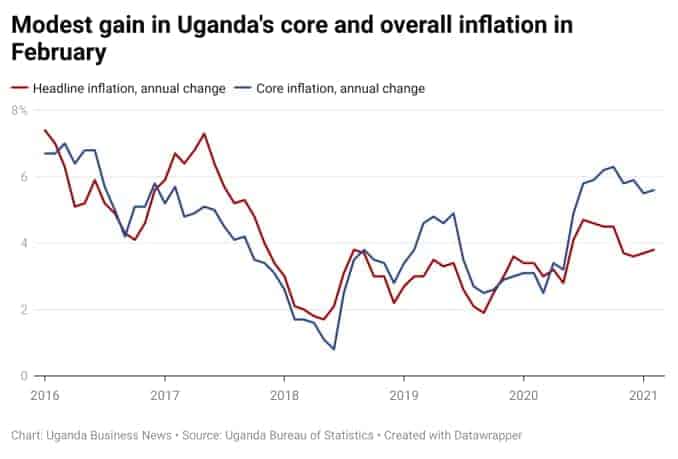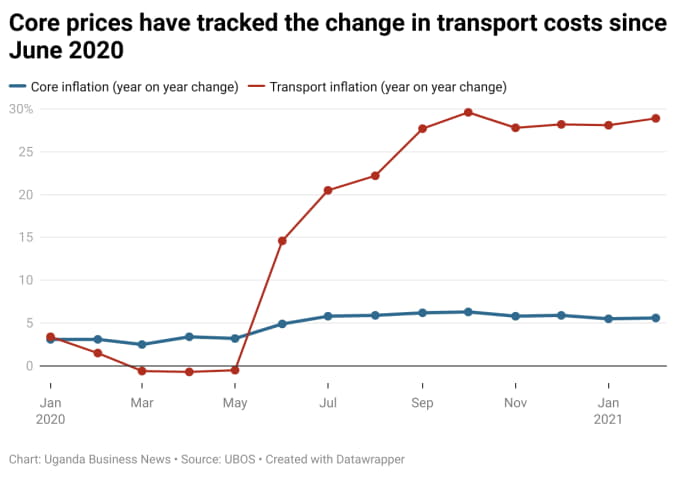Inflation in Uganda rose for the third time in as many months, pushed up by a slower decline in food prices, according to data from the Uganda Bureau of Statistics.
The consumer price index rose 3.8 per cent on an annual basis in February, up from 3.7 per cent in January. The “core” measure of the CPI that excludes volatile food and energy prices gained 5.6 per cent year on year, on the other hand, slightly higher than the 5.5 per cent seen the previous month.
The rise in the annual core rate of inflation, which is closely monitored by the Bank of Uganda because it measures underlying price pressures, was due to an increase in the costs of purchasing second hand vehicles and a slower fall in the price of sugar.
On a year on year basis, the inflation for the purchase of second hand vehicles rose 21.9 per cent in February compared to 14.7 per cent in January, pushing up transport inflation to 28.9 per cent from 28.1 per cent the previous month. Sugar prices, meanwhile, dropped 5 per cent versus a fall of 9.4 per cent the previous month, as services costs gained 10.6 per cent, the same rate recorded in January.
The change in the core CPI over the past nine months has mirrored movements in transport costs, which rose sharply last year as operators raised prices in response to restrictions imposed by the government to control the spread of the coronavirus.
The central bank expects core inflation to decline “over the next four months” as restrictions are eased and public transport prices fall, according to its monetary policy statement released in mid-February.
The Banks’ monetary policy committee said it expects core inflation to average 4.5 per cent in the current financial year and to eventually settle around its target of 5 per cent over the next one year as economic activity recovers.
Food prices fell at a slower rate in February, dropping 4.3 per cent compared to January’s 5.6 per cent decline and were the biggest contributors to the increase in the overall inflation rate. This followed a more muted softening in vegetable prices compared to January.
Inflation for energy, fuel, and utilities dropped by 2.6 per cent year on year in February, a stronger decline from January when it fell by 1.9 per cent. Ubos said this was due to a decline in the 12-month costs of solid fuels, specifically charcoal.








